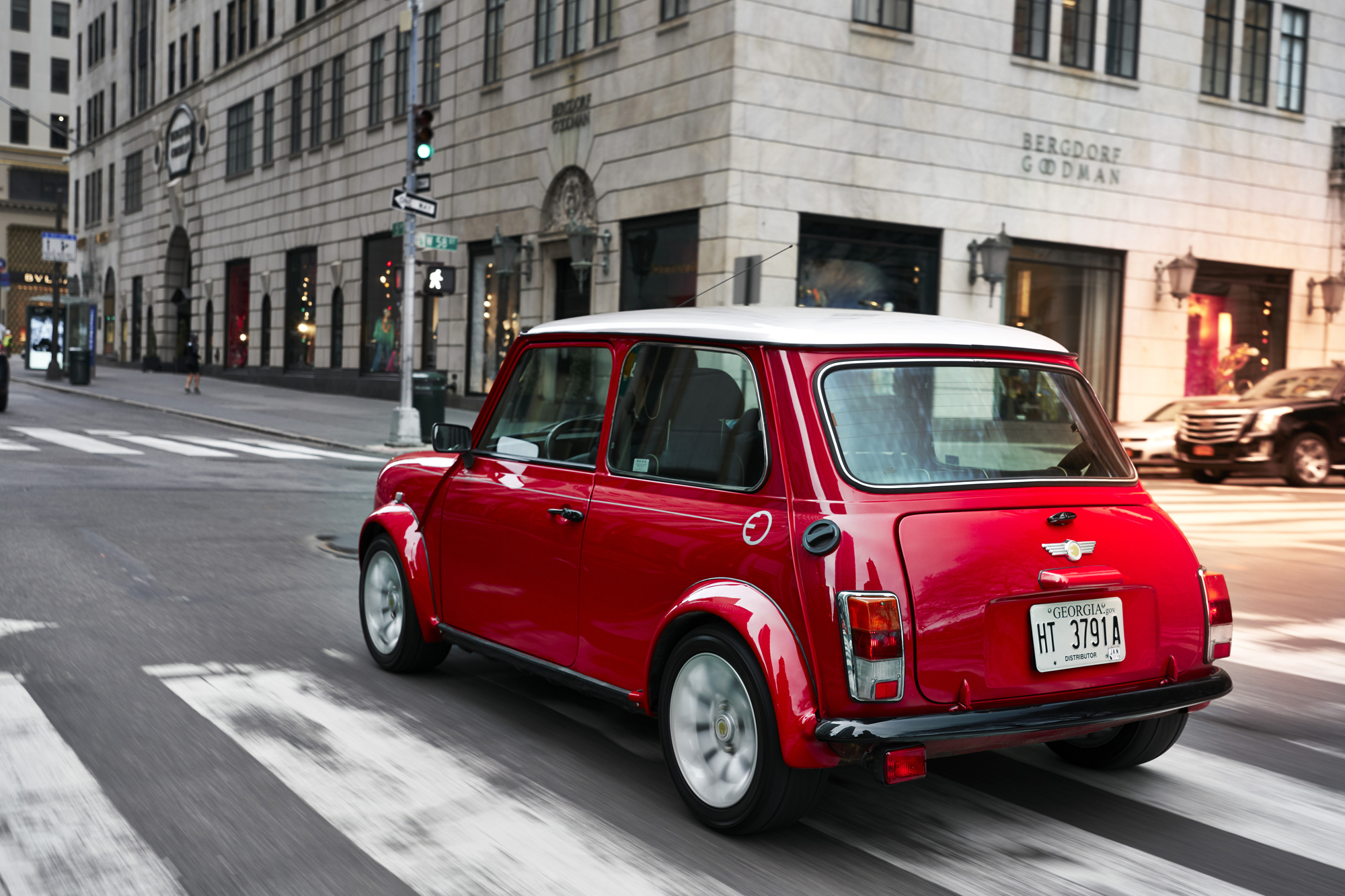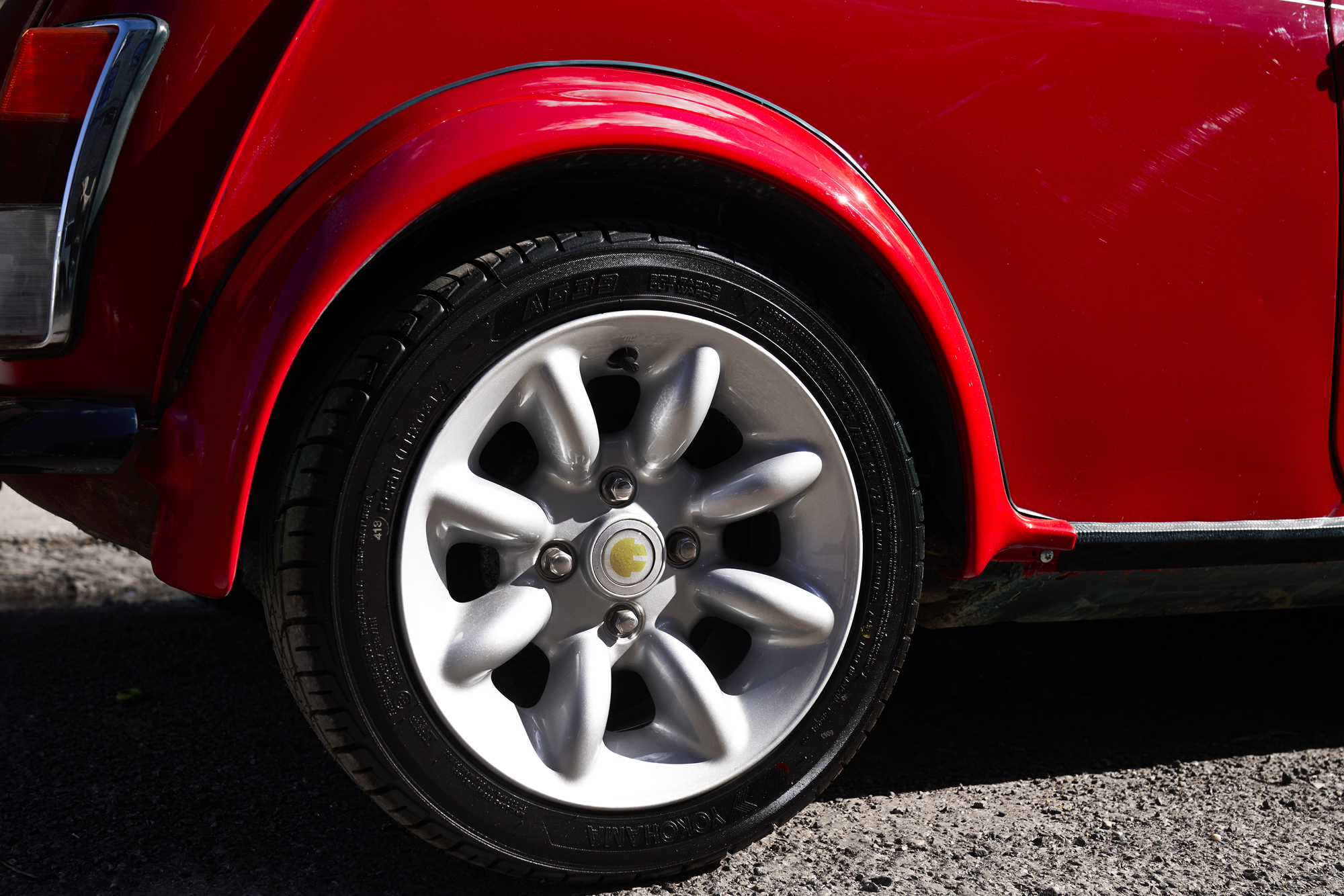BMW’s Mini division will soon introduce its first series-produced electric model. This is not that. The EV isn’t ready yet, so the company is whetting our appetite by displaying a fully refurbished original model converted to run on electricity. The resto-modded classic made its debut on the eve of the New York auto show.
Mini explains it started with a 1990s car recently treated to a thorough restoration. Those well-versed in Mini history will tell right off the bat that it’s not stock, but it looks no different than the countless owner-modified examples that continue to zig-zag through the world’s busiest city centers. Discreet plug-shaped emblems on both ends and on the alloy wheels are the biggest hints that it kicked its gasoline-slurping habit.
So, what’s under that tiny hood? Where on earth did Mini find space to install a battery pack? How far can it drive on a full charge? Your guess is as good as ours. Mini hasn’t released technical specifications yet. Going electric inevitably adds weight, but the company promises the conversion hasn’t sacrificed the go kart-like handling that made the original Mini a hit on the track and in crowded urban centers.
Mini stresses its electric classic is a one-of-a-kind design study it built for the New York auto show, not a preview of an upcoming model it will sell customers though a custom restoration service. If you want one, your best option is to buy a donor vehicle and start the project in your garage. Alternatively, British classic car fans seeking a quiet ride that goes easy on the environment can ask Jaguar to build a battery-powered E-Type, though its price tag isn’t for the faint of heart.
We’ll have to wait a little while longer to see the modern-day electric Mini. Announced with a concept car last year, the two-door model will enter production before the end of next year in the company’s Oxford, England, factory. The announcement quells rumors that claimed production would take place in China. Stefan Juraschek, the head of BMW’s electric powertrain department, recently revealed to Digital Trends Mini’s first series-produced electric model will share some drivetrain parts with the i3 but it will receive a model-specific lithium-ion battery pack.

















